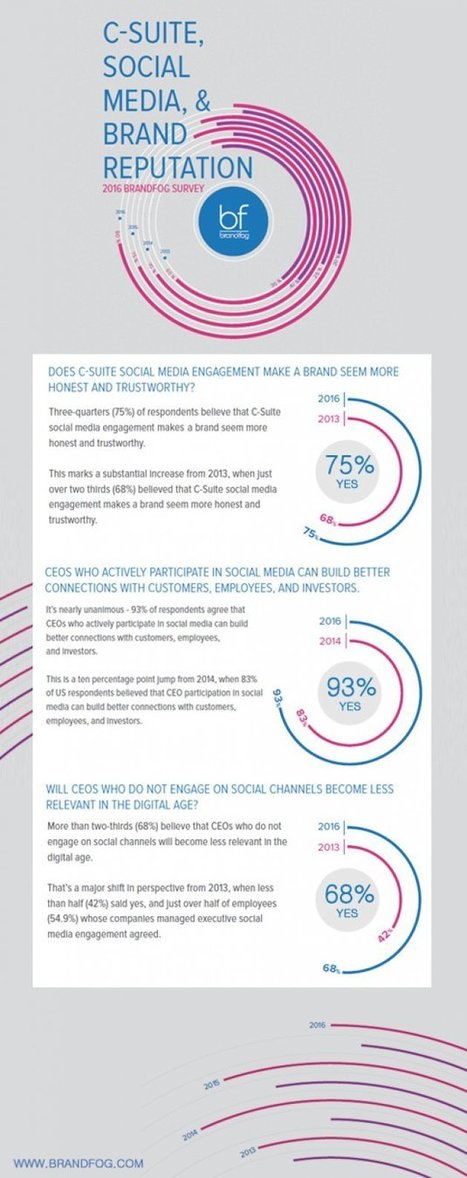Social media is more than just a key to driving sales, it can also be a helpful source for founders to project confidence and grace, or to stay cool during times of crisis.
That's according to a new study called "C-Suite, Social Media, and Brand Reputation" from BRANDfog, a social media consulting startup that helps Fortune 1000 executives improve their web profiles. It revealed that three-quarters of those surveyed (500 U.S. employees from different companies spanning various industries) believe that social media engagement in the C-suite makes a brand seem more honest and trustworthy.
Since 2013, there's been a 15 percent increase in the number of respondents who believe that social media engagement makes CEOs more effective leaders, it found.
"Most companies are good at utilizing social media on the brand level, but social media at the C-suite is much more strategic," said Ann Charles, founder and CEO at BRANDfog. Prior to launching the company in 2009, Charles held chief marketing positions at several tech startups, and later ghost wrote quarterly earnings scripts for executives.
Research and publish the best content.
Get Started for FREE
Sign up with Facebook Sign up with X
I don't have a Facebook or a X account
Already have an account: Login
Social marketing, PR insight & thought leadership - from The PR Coach
Curated by
Jeff Domansky
 Your new post is loading... Your new post is loading...
 Your new post is loading... Your new post is loading...
|
|














Leaders on social media are an asset in a crisis.